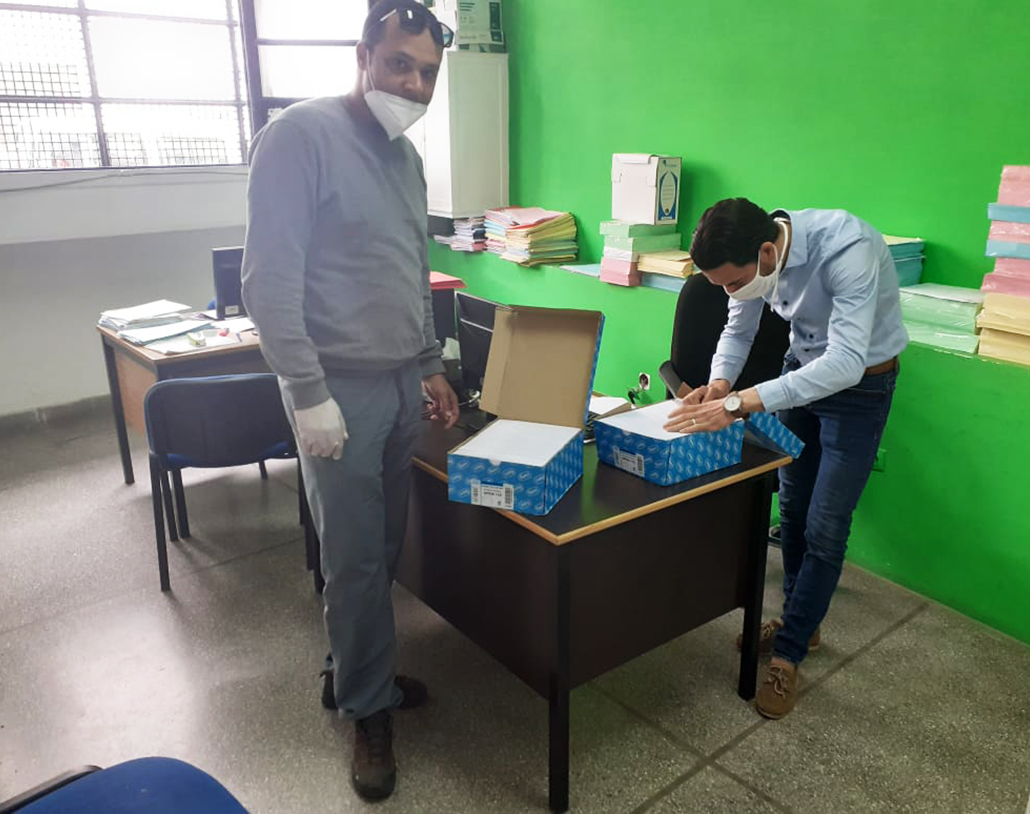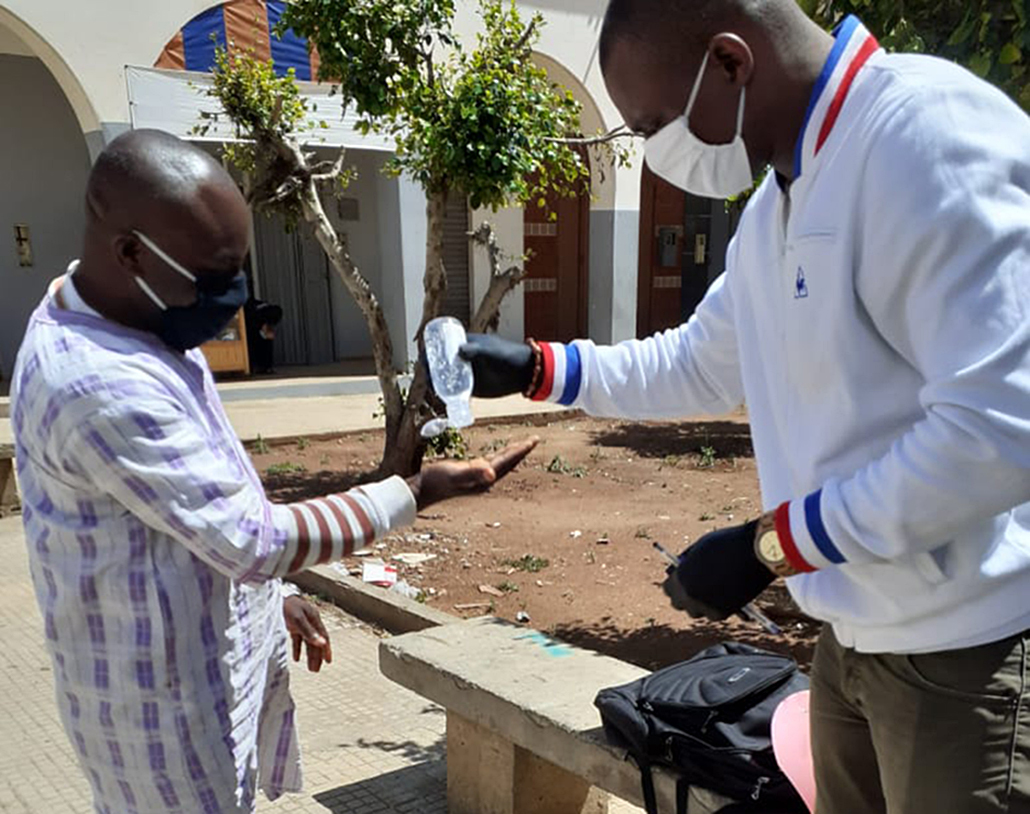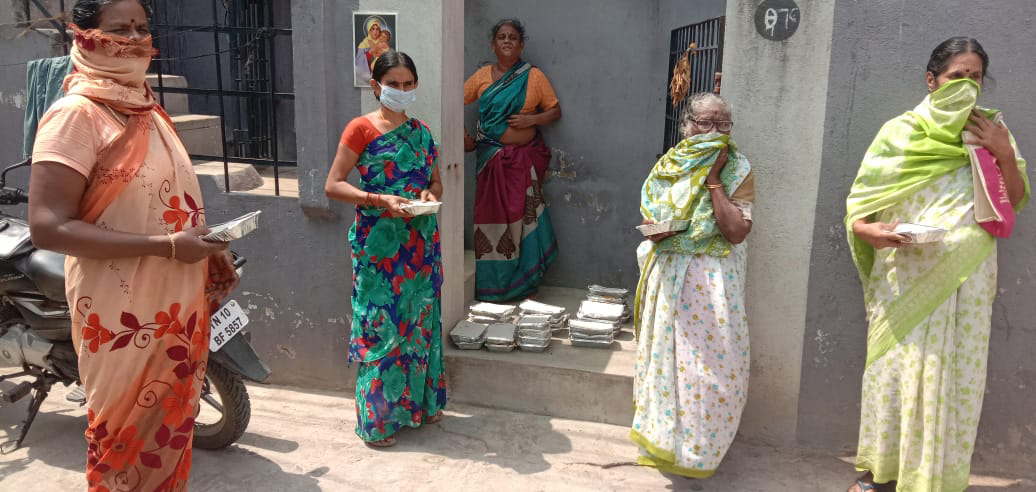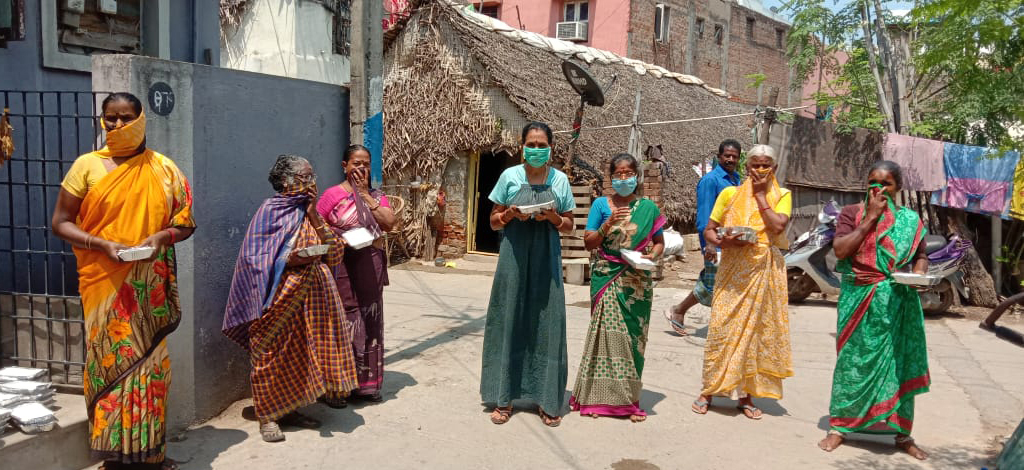The COVID-19 crisis strengthens international solidarity
In the light of the health, economic, and social crisis caused by the COVID-19 pandemic, Brussels International is offering support to the most vulnerable population groups in the Region of Rabat-Salé-Kénitra (RSK), in Kinshasa and in Chennai.
In the context of the current global health crisis, Brussels International wanted to offer support to its international partners. Some of these partners, who are extremely vulnerable, were particularly affected by this crisis and are all the more at risk, given the dramatic economic and social consequences of this crisis. We therefore took effective action, putting in place specific and targeted initiatives in several villages and regions, i.e., the Region of Rabat-Salé-Kénitra (RSK), Kinshasa, and Chennai.
First direct partnership between Brussels International and Enabel
For Kinshasa and the Region of RSK, Brussels International concluded a partnership with Enabel, the Belgian government’s development agency. Its mission is to implement and coordinate the Belgian development cooperation policy. The agency also executes missions for other national and international bodies. Its expertise is widely-recognised in various countries, including in the Democratic Republic of the Congo (DRC) and in Morocco.
Brussels International will provide support to two projects that have already been implemented by Enabel in Kinshasa and the Region of RSK in response to the COVID-19 crisis. An amount of €150,000 will be allocated to the first direct partnership between these two organisations.
Emphasis on migrant populations in the Region of Rabat-Salé-Kénitra
The Region of RSK is home to the highest concentration of migrants in Morocco. At the end of 2019, the United Nations High Commissioner for Refugees also confirmed that this region accounted for the largest refugee population in the country, i.e. 29%. Consequently, the impact of this health emergency will be most keenly felt and will also be most visible in this region.

For the most part, these migrants, who are employed in the informal economy, were immediately stripped of their income during the period of confinement. Many of the places in this region (including Rabat, Salé and Témara), where these migrants work for the most part (street shops, hairdressing, or beauty salons…), were closed. These populations are also excluded from the aid measures taken by the Moroccan government for people in the informal economy whose work was temporarily suspended.
The financing by the Brussels-Capital Region (BCR) will permit Enabel to provide support to Entraide Nationale – the primary Moroccan public institution for social assistance – as part of its mission to assist the population during this pandemic. Protective equipment will be supplied to employees of this institution, more specifically to the management, to social workers, and the trainers who work in the training centres of the Region of Rabat-Salé-Kénitra.
Addressing the lack of medical equipment in Kinshasa
On 10 March, the Congolese authorities took various measures in Kinshasa, including declaring a health emergency and announcing a lockdown of the city of Kinshasa. The situation could worsen there, due to the lack of equipment and resources. Hygiene measures are difficult to enforce due to the lack of water. There are several other problems, including the lack of screening facilities, hospital equipment and capacity, health training, support for carers, etc.
In this context, the Brussels-Capital Region will provide support to Enabel for the implementation of a general health support service. This primarily consists of supplying equipment that is sorely lacking, including FFP2 masks, surgical masks, visors, medical gloves, coveralls, and protective boots.

This equipment will go to Saint-Joseph General Hospital in Limeté, which is the reference hospital and is in charge of managing the COVID-19 epidemic for a population of approximately 2 million, as well as to five hospitals in Kinshasa, that were designated to care for COVID-19 patients.
Tending to the most basic needs of Chennai’s most vulnerable populations
In India, where a large part of the population lives in poverty, the confinement and social distancing measures are particularly difficult to implement. Moreover, the country’s health infrastructure (0.7 beds for 1,000 participants) is incapable of coping with a crisis.
Although Tamil Nadu is among the most affected states in India, COVID-19 fortunately has not yet caused a health crisis in Chennai. However, a horrific socioeconomic crisis is looming, as a result of the general lockdown that was enforced from 24 March 2020. The situation is likely to become dramatic for migrant workers and day labourers, who are employed in the informal economy for the most part. Currently, an estimated 170,000 workers are homeless and have no source of income.
The basic needs of this population – water, food, housing – must urgently be met and the digital divide of their children, who are currently out of school, must also be avoided. Otherwise, this population will be forced to no longer respect the lockdown rules, which are difficult to apply in a largely informal economy.

For Chennai, a sum of €50,000 was allocated to the non-governmental organisation WSM (Wereldsolidariteit-Solidarité Mondiale). The NGO works with its local partners – more specifically the consortium of NGOs that was recognised by the local authorities as a point of contact for the response to the COVID-19 crisis – to provide direct assistance to migrant workers and the informal economy (more specifically domestic workers) to meet their basic needs and ensure their children, who are out of school, have Internet access.



